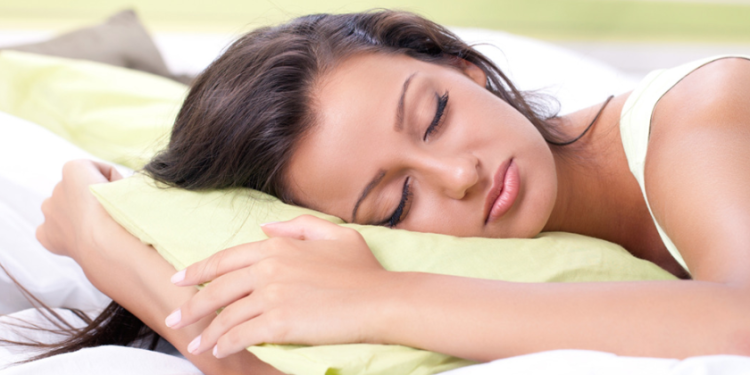You’re not getting enough sleep, to put it simply. One in three American adults is failing to get the amount of shut-eye recommended by the CDC, which suggests that one in three people are not getting seven to nine hours of sleep every night, according to The National Sleep Foundation.
Sleep deprivation harms your brain’s ability to process information and impairs memory storage, among other things. According To The National Institutes Of Health, lack of sleep can cause your brain not to cleanse toxins properly.
Develop Good Sleep Habits
Most people don’t get enough sleep, and that can lead to a lot of health problems. But getting better sleep is actually pretty easy – you just need to develop some good sleeping habits. Here are a few tips to help you get started:
1. Establish a Regular Sleep Schedule
Try to go to bed and wake up at the same time every day. This will help your body get into a routine and make it easier to fall asleep. There are many things you can do to improve your sleep, but establishing a good sleep schedule is one of the most important. Try to go to bed and wake up at the same time each day, and limit your napping to no more than 30 minutes.
2. Avoid Caffeine and Alcohol Before Bed
Caffeine can keep you awake, and alcohol can make it difficult to fall asleep. If you’re looking to improve your sleep, avoiding caffeine before bed is a good place to start. Caffeine can stay in your system for up to eight hours, so drinking coffee or soda late in the day can keep you up at night. Instead, try winding down with a non-caffeinated drink like herbal tea or warm milk.
3. Avoid Working or Using Electronic Devices in Bed
Working or using electronic devices in bed can keep you awake because the light from the screens can disrupt your sleep cycle. There are a few different things you can do to try and improve your sleep without having to work too hard. One of the easiest things to do is make sure your sleeping environment is dark, quiet, and cool. You may also want to avoid using electronic devices before bed, as the blue light they emit can disrupt your sleep patterns.
4. Get Some Exercise During the Day
Exercise can help you fall asleep faster and get a better night’s sleep. While there are a number of things you can do to help improve your sleep habits, one simple and effective way is to exercise more often. That’s because exercise can help to improve the quality of your sleep by promoting deeper and longer periods of REM sleep.
5. Make Your Bedroom Dark and Quiet
Try to keep your bedroom dark and quiet so that it’s easier to fall asleep. It’s well known that a dark room is key for a good night’s sleep. But what many people don’t realize is that even the slightest bit of light can have an impact on your sleep quality. If you’re having trouble sleeping, one of the first things you should do is make sure your bedroom is as dark as possible.
6. Don’t Stress About Getting Enough Sleep
Worrying about not getting enough sleep can actually make it harder to fall asleep. Just relax and focus on developing good sleeping habits. It may seem counterintuitive, but worrying about not getting enough sleep can actually make it harder to fall asleep and stay asleep. Instead of fixating on the amount of sleep you’re getting, focus on creating a relaxing bedtime routine and setting aside enough time for a full night’s rest. You’ll be more likely to wake up feeling refreshed and well-rested if you’re not stressing about sleeping.
7. Practice Some Relaxation Techniques Before Bed
Yoga, meditation, and deep breathing exercises can all help you relax and prepare for bed. Yoga is a great way to relax your mind and body, and it can be done anywhere. all you need is a mat and some comfortable clothing. There are many different types of yoga, so find one that suits your needs.
8. Talk to Your Doctor if You’re Having Trouble Sleeping
If you’re having trouble sleeping, there may be a medical reason why. Talk to your doctor about any sleep problems you’re having.
Apps That Can Help You Sleep
People often say that they don’t have time to sleep, but in reality, most people just don’t make sleep a priority. According to the National Sleep Foundation, adults should get seven to nine hours of sleep per night. However, nearly one-third of American adults get less than six hours of sleep per night.
That’s why it’s important to find apps that can help you get better sleep. There are plenty of apps out there that claim to help you get better sleep, but not all of them work. So, how do you know which app is right for you?
1. Calm: This app is designed to help you relax and fall asleep. It has a variety of features, including sounds and music to help you sleep, as well as stories and articles to relax your mind.
2. Headspace: This app is designed to help you meditate, which has been shown to improve sleep quality.
3. Sleep Cycle: This app tracks your sleep cycles and wakes you up during the lightest stage of sleep, so you feel more rested.
4. Pzizz: This app uses sound effects and music to help you fall asleep and stay asleep.
Conclusion
So, if you’re looking for an app to help you get better sleep, these are four great options to consider! Developing good sleeping habits can be challenging, but it’s worth it for the improved health and well-being you’ll experience. Follow these tips and you’ll be on your way to better sleep in no time!


